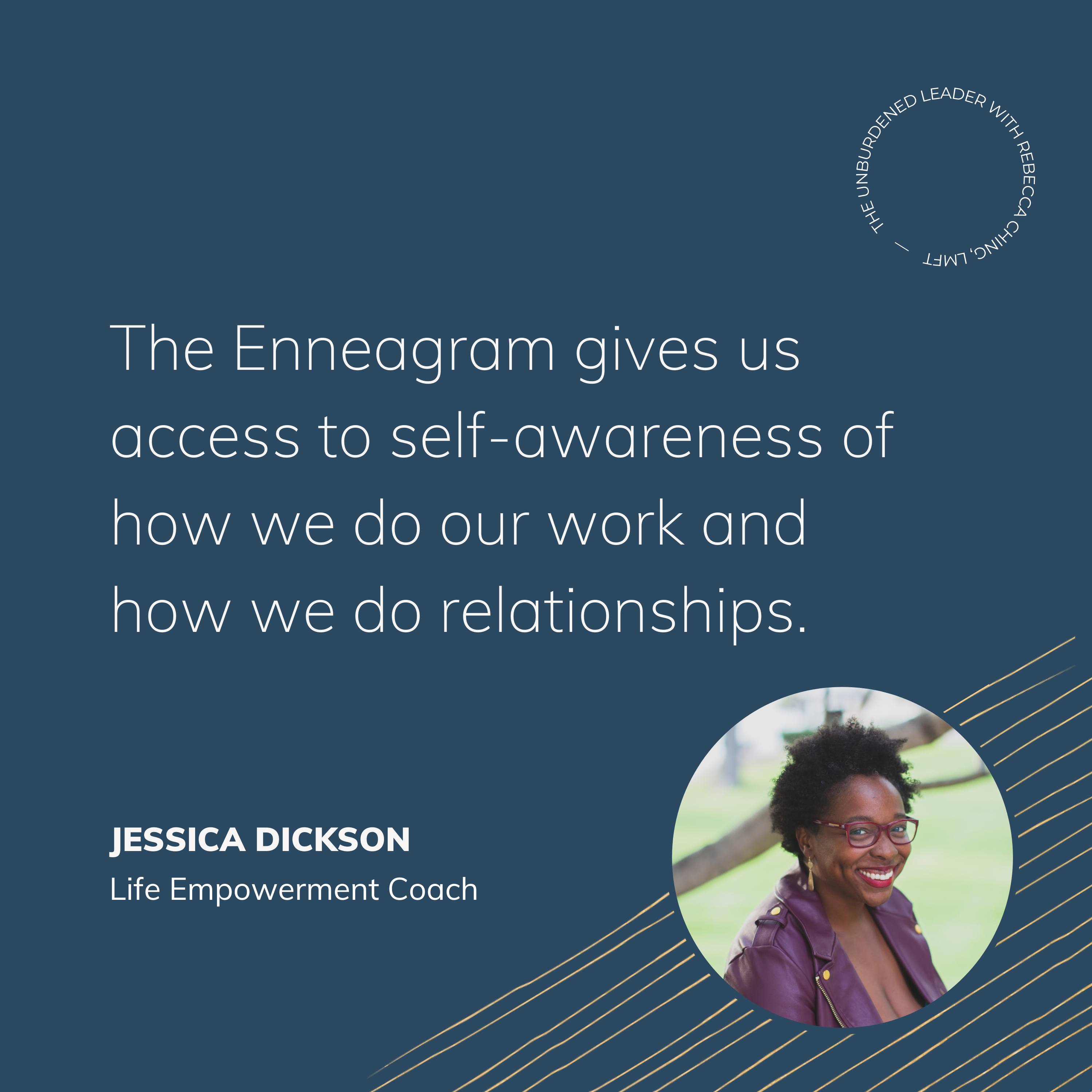We often look at the results of quizzes and personality assessments for language to help describe ourselves to others. And to better understand ourselves.
These assessments can help us manage how we hire, date, and even want others perceive us.
The language of these tests can fuel connection and belonging within and with others–to an extent.
But it can also be used to sort, judge, or even shame aspects of another’s personality. These assessments can be used to silo an aspect of how people show up or experience the world, into something that becomes polarizing or seen as “good” or “bad.”
We react to judgments of a trait in someone else instead of being present to someone’s full identity.
Yet, used with self-reflection and curiosity, assessment systems like the Enneagram can further a deeper understanding of ourselves, so we can in turn lead ourselves and others from a place of health.
My guest today is shaking things up around how we experience and use the Enneagram. And I am loving how she integrates the Enneagram into her anti-racism work and writings.
Jessica Denise Dickson (she/her/hers) is a life empowerment coach who believes that when Black women heal, the world heals. She believes that the path to personal and collective healing comes through examining the systemic issues that impact each of us, and unraveling oppressive systems from our personal, internalized, and collective worldviews. She utilizes the inner work of the Enneagram with the context setting of antiracism to create healing environments for her clients in one-on-one work, group work, and with organizations so that every human can live more authentically with self-trust, self-safety, and fully embodied freedom that is collectively sustained and celebrated.
Listen to the full episode to hear:
- How shame, fear, and scarcity lay the foundation for the culture of whiteness and how it impacts how white people engage with anti-racism work
- How systems like the Enneagram give us language to describe and understand our experiences
- How the Enneagram helps us understand our motivations and reactivity, so that we can approach growth and expansion with more self-awareness
- Why the goal of Enneagram work is not to overcome your type or exile your reactivity
- How embodiment builds resilience and connection
Learn more about Jessica Dickson:
- JessicaDDickson.com
- Instagram: @JessicaDDicksonCoaching
Learn more about Rebecca:
Resources:







Comments +